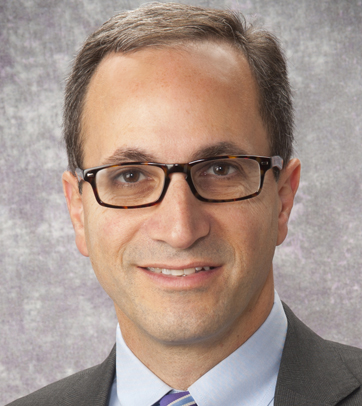


By Bhisham Chera MD, FASTRO, Medical University of South Carolina
The combined positive score (CPS), which is defined as the number of PD-L1–staining cells (tumor cells, lymphocytes and macrophages) divided by the total number of viable tumor cells, multiplied by 100, is predictive of response to PD-1 blockade in the recurrent, metastatic setting. Robert Ferris, MD, and colleagues at the NRG, conducted a planned translational correlative study using biospecimens from NRG-HN003, which was a phase I study of definitive chemoradiotherapy and adjuvant pembroluzimab.
The primary publication from this trial showed that this regimen was safe and feasible. The main finding from this explorative biomarker correlative study was that, in a small patient population study, CPS did not correlate with clinical outcomes in patients treated with definitive CRT and adjuvant pembrolizumab. There are other ongoing exploratory biomarkers being evaluated in this study, including cytokines, chemokines, whole exome sequencing, CD8 T cell infiltration, and peripheral blood mononuclear cells.
In the Javelin randomized phase III trial of definitive CRT +/- concurrent and adjuvant Avelumab (anti-PD-L1), PD-L1 blockade did not improve outcomes. However, in an exploratory analysis a potential progression-free survival benefit was observed in patients whose tumors express high amounts of PD-L1.
Dr. Ferris, the lead author, stated, “This trial showed that we can use PD-1 inhibitors in the postoperative setting as an intensification strategy for high risk resected disease. Different combinations and sequencing may be needed to optimize efficacy, and our exploratory biomarker correlative results may guide future trial design and patient selection strategies that should be validated in larger trials.”
Abstract 15 - NRG-HN003: Phase I and Expansion Cohort Study of Adjuvant Pembrolizumab, Cisplatin and Radiation Therapy in Pathologically High-Risk Head and Neck Cancer with Exploratory Biomarker Correlatives was presented during the Plenary II session at the 2024 Multidisciplinary Head and Neck Cancers Symposium on March 1, 2024.